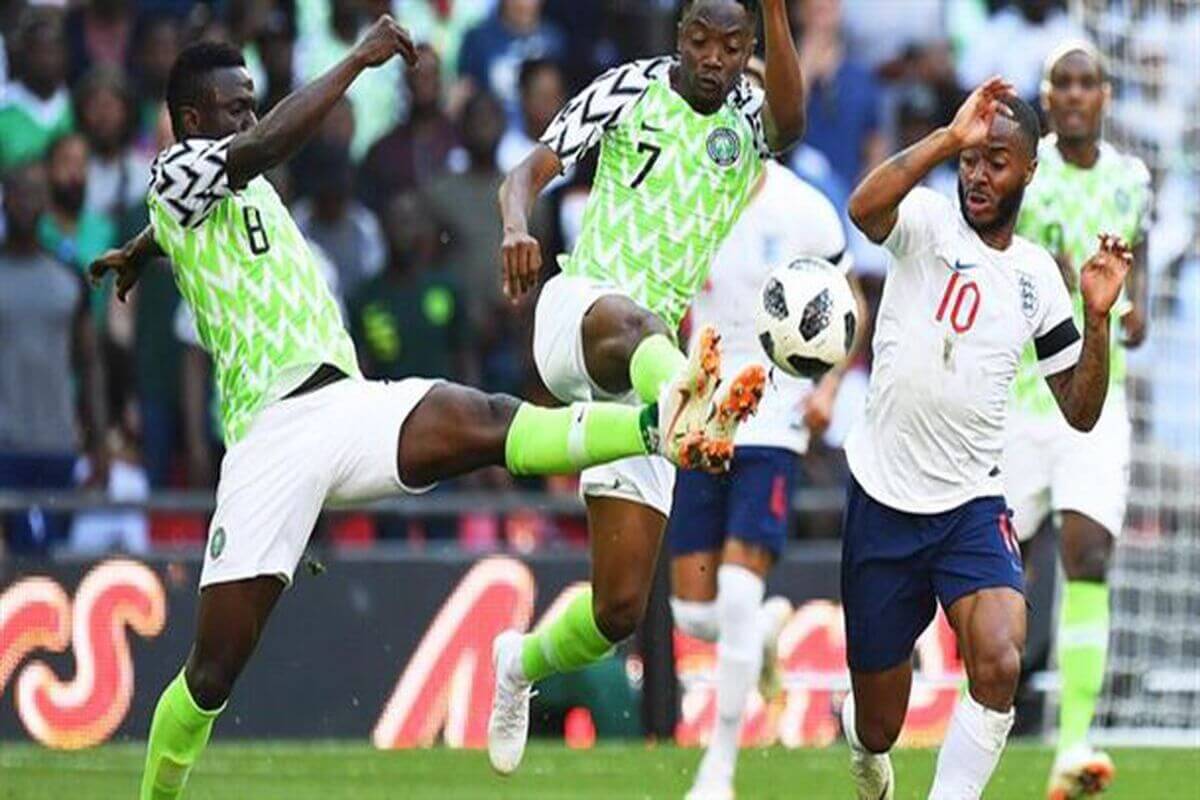





찬양대 :
지휘자 :
방영일 :
A whopping 67% of Nigerians enjoy Football, which demonstrates how much the sport influences Nigerian culture. Football's journey in Nigeria began over 100 years earlier, shaping the country's sporting landscape.

Football in Nigeria dates back to the early 1900s. British colonisers brought the sport to the country in 1904. The very first documented football match happened that exact same year, kicking off Nigeria's rich footballing history of football in nigeria.

By 1950, Football had actually become Nigeria's nationwide game. Its quick increase caused many clubs and associations forming in the early 1900s. This growth improved Nigerian pride and assisted influence political liberty motions.
Nigeria's football legacy now reaches beyond its borders. Over the years, the nation has produced first-rate talent, and Nigerian youth teams have won the FIFA U-17 World Cup five times.

The Super Eagles, Nigeria's national team, are a force in African Football. They frequently receive substantial competitions and make their mark worldwide.
Football got here in Nigeria during the British colonial era. It quickly captured the hearts of residents, marking the start of a rich footballing custom in the country.
The first football match in Nigeria occurred in June 1904. It was in between Hope Waddell Training Institution and the team of HMS Thistle. The Nigerian group won 3-2, stimulating an across the country passion for the sport.
I hope the Waddell Training Institution in Calabar played an essential function in early Nigerian Football. Their success over HMS Thistle's crew revealed the skill of Nigerian gamers. This match set the stage for Football's development in the country.
After the 1904 match, Football's popularity soared. From 1906 onwards, early football clubs began forming, and this grassroots movement spread out the sport throughout Nigeria.
The Lagos District Amateur Football Association (LDAFA) was established in 1932. The LDAFA marked the start of organised Football in Nigeria and led the way for the sport's future success nationally and internationally.
Football got here in Nigeria in the early 20th century. British colonisers brought this beloved sport to the West African nation. It quickly ended up being an enthusiasm that formed Nigeria's sporting landscape for generations.
British colonisers played a vital function in Nigeria's football history. The very first recorded match occurred in June 1904. Hope Waddell Training Institution dealt with the crew of HMS Thistle.
The nigerian youths group won 3-2. This victory marked the beginning of a rich football tradition in the nation.
The Lagos District Amateur Football Association (LDAFA) was developed in 1932. It laid the groundwork for organised Football in Nigeria, which paved the way for the Nigerian Football Association (NFA).
The NFA was founded in 1945. It became the national governing body for Football and oversaw its development across the country.
Football rapidly settled in Nigeria, becoming the national sport by 1946. Its ease of access and easy guidelines assisted it spread rapidly. Local neighborhoods welcomed the video game, forming their groups.
This grassroots interest laid the foundation for Nigeria's future success. The nation's enthusiasm for Football grew, leading to achievements on the worldwide stage.
"Football became more than just a sport; it developed into an important Nigerian culture and identity element."
The British colonisers' introduction of Football stimulated a sporting transformation in Nigeria. Football's journey mirrored the country's development from the first match in 1904 to the development of the NFA in 1945.
Today, Football remains an important part of Nigerian life. It's a testimony to the sport's enduring appeal and cultural significance in the country.
The Nigerian Football Association (NFA) was developed in 1945. It played a vital function in shaping Nigerian Football. In 1949, the NFA formed Nigeria's first nationwide football group.

In 1959, Nigeria signed up with the Confederation of African Football (CAF), which enabled it to participate in continental competitions. Nigeria likewise ended up being a FIFA member in 1960, signing up with the worldwide football community.
The NFA, later relabelled the Nigeria Football Federation (NFF), organised national competitions. They produced the Nigerian Premier League and the Federation Cup, which became the highlights of domestic Football.
Football associations across Nigeria prospered under the NFF's guidance. They nurtured skill and promoted grassroots advancement. professional football league Football began in 1990 with sixteen club sides taking part.
"Our objective is to restore football development at the nationwide level and repackage the league in line with global finest practices," specifies the Nigeria National League.
The Premier League was executed in 2003. This relocation intended to improve domestic football standards and draw in more spectators and sponsors to national competitions.
Nnamdi Azikiwe, born in 1904 in Zungeru, Northern Nigeria, left an indelible mark on Nigerian Football. His influence formed the nation's sporting landscape. Azikiwe's enthusiasm for sports stemmed from his diverse experiences and education abroad.
In 1938, Azikiwe founded Zik's Athletic Club (ZAC) in Lagos. This club became a symbol of African self-determination. ZAC played an important function in developing Nigerian Football.
It supplied a platform for young professional football league athletes to display their skills. The club promoted regional skill and promoted a sense of national pride.
Azikiwe's newspaper, the West African Pilot, played a significant function in popularising Football across Nigeria. It extensively covered regional matches, group news, and player profiles. This limelights assisted grow the sport's fan base.
Azikiwe saw Football's prospective as a unifying force in the independence motion. He used the sport to break down ethnic barriers, and Football became a symbol of Nigerian unity through his advocacy.
Azikiwe's efforts linked Football to nationalism, contributing substantially to the sport's growth and forming its role in contemporary Nigeria.
"Football is not simply a video game; it's a powerful nationwide unity and identity tool."
Nigeria's football journey took a significant leap forward in 1960. The nation acquired FIFA membership, marking its entry into global Football. This turning point accompanied Nigeria's independence from British rule.
Nigeria's very first worldwide match took place on 8 October 1949. They faced Sierra Leone and won 2-0 in a historic encounter. This victory sparked enthusiasm for Football throughout the nation.
Nigeria debuted in the Africa Cup of Nations in 1963. The competition, hosted by Ghana, saw Nigeria facing tough challengers. These experiences proved important for the group's growth.
Nigeria's perseverance settled in 1973. They clinched gold at the All-Africa Games, marking their very first significant continental success. 1976, they secured bronze at the Africa Cup of Nations in Ethiopia.
Nigeria's football prowess grew in the 1970s. In 1978, they repeated their bronze medal task in Ghana. 1980, Nigeria hosted and won its first Africa Cup of Nations title.
Nigerian football governance has seen substantial changes and challenges because 1945. The Nigeria Football Federation has shaped the country's football landscape, and its journey has actually been complex and transformative.
The Nigeria Football Association began in 1945. It became the Nigeria Football Federation in 2008. This change intended to modernise the organisation's structure.
In 2019, a costs was passed to recognise the NFF officially. It's still waiting for governmental approval.
The NFF oversees 3 primary leagues: the Nigerian Premier League, Amateur League, and Women's League. These competitions form the backbone of Nigerian Football.
They promote skill and promote the sport nationwide. However, challenges like delayed seasons and place conflicts continue.
Nigeria's Super Eagles national team was formed in 1949. They've gotten approved for 6 FIFA World Cups and won three Africa Cup of Nations titles.
These accomplishments have boosted Nigeria's standing in international Football. The Super Eagles' success has put Nigeria on the global football map.
However, Nigerian Football faces ongoing challenges. A research study exposed high levels of corruption in football governance. This affects contract awards and gamer choice.

These issues highlight the need for reform. For the sport to grow, openness in the Nigerian football administration need to improve.
Nigerian Football's legacy showcases the nation's resilience and enthusiasm. It began in 1904 with Hope Waddell Training Institute dealing with HMS Thistle. Ever since, Nigeria has ended up being a powerhouse in African Football.
The sport's growth reflects the country's journey from colonial rule to independence. It has promoted a sense of national identity and unity. Nigeria's global football acknowledgment is indisputable.
The Super Eagles' gold medal at the 1996 Atlanta Olympics is a highlight. Their impressive FIFA World Cup efficiencies likewise stand out. Nigeria has actually gotten approved for six World Cups.
In 1994, Nigeria attained its highest FIFA ranking of 5th, solidifying its put on the international phase. Nigerian Football continues to evolve with appealing prospects.
Talents like Ahmed Musa and Kelechi Iheanacho shine in leading European leagues. This bodes well for the sport's development. The Nigeria Football Federation guides the video game's development.
Football's enduring tradition in Nigeria motivates upcoming generations and promises an amazing future for the sport. The lovely video game remains a source of national pride and unity.
British colonisers brought Football to nigeria professional football league in the early 1900s. The sport quickly ended up being popular and woven into Nigerian culture.
The first taped football match in Nigeria happened in June 1904. Hope Waddell Training Institution bet the HMS Thistle team. The Nigerian team won 3-2.
Football's basic guidelines and availability made it popular in Nigeria. By 1950, it was the national game, inspiring pride and flexibility movements.
Nnamdi Azikiwe, Nigeria's first President, was essential in establishing Football. He began Zik's Athletic Club in Lagos in 1938, and his paper, the West African Pilot, linked Football to the independence motion.
Nigeria ended up being a FIFA member in 1960, the same year it gained self-reliance. This marked Nigeria's main entry into international football governance.

The Nigerian Football Federation (NFF) governs Football in Nigeria. It progressed from the Nigerian Football Association, established in 1945. The NFF arranges nationwide leagues and competitions, consisting of the Premier League and Federation Cup.
Nigeria has played in 6 FIFA World Cups. The Super Eagles national team has won three African Cup of Nations. They've likewise won gold in the 2nd All-Africa games.




